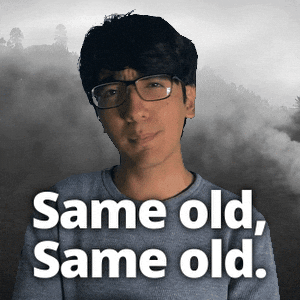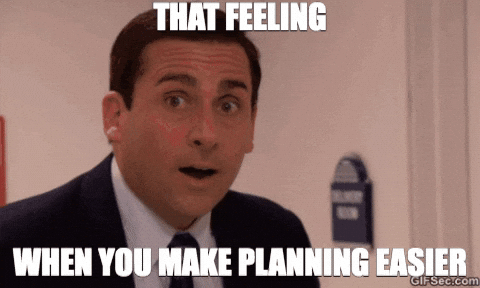- The High Performance Playbook
- Posts
- The 'Time' Habit That Separates Good from Great
The 'Time' Habit That Separates Good from Great
The High Performance Playbook
Welcome to Week 31 of the High Performance Playbook.
The growth is incredible, we’re now closing in on almost 14,000 subscribers, and we’re officially one of the fastest growing newsletters in the US! So, huge thank you for reading and continuing to share The High Performance Playbook with friends!
If you’re new and just tuning in to the HPP, we cover the strategies and frameworks that separate the 1% from the .01%. We dive deep into: health & fitness + longevity, personal finance & investing, business growth hacks, and how to optimize all areas of your life.
If any of those topics sound interesting, the High Performance Playbook is for you.

If you enjoy the content and get some value from it, please share this link with a few friends and help me spread the word! There’s no better compliment than a referral.
Ready? Start your engines… Let’s GO:

Mindset & Psychology

The Quiet Strength of Mental Routines
Most people think motivation is what drives them. The truth is, motivation is fleeting.
One day you’re fired up, the next you’re exhausted. This leads to stop-and-go progress on your various projects and priorities as your productivity is linked to your mood.
But high performers don’t rely on bursts of inspiration. They rely on mental routines.
Pre-commits, mood resets, and micro rituals act like guardrails for your clarity under pressure. They create predictability in a world of uncertainty, allowing you to operate at your best even when circumstances are chaotic.
Imagine a CEO walking into a high-stakes board meeting. Instead of relying on willpower to stay calm, they follow a 2-minute breathing and visualization routine.
Instantly, they’re grounded, focused, and able to act strategically rather than react emotionally. The same principle applies whether you’re an athlete, entrepreneur, or creative professional: routines turn potentially overwhelming moments into manageable, even repeatable, performance windows.
The power of routines is subtle but profound. They train your brain to respond predictably under stress, reducing mental fatigue and decision overload.
Without these guardrails, high-pressure situations become draining, and even the most talented individuals struggle to maintain composure or focus.
Over time, mental routines compound in their effect. Small, consistent practices can improve resilience, judgment, and focus more than any sporadic burst of willpower ever could.
Even simple habits like writing a daily priority list, scheduling a short reflection period mid-day, journaling at night, or maintaining a consistent morning ritual all create measurable benefits.
They anchor your attention, allow you to process complex problems more effectively, and reduce the cognitive load required to navigate everyday decisions.
The top performers in any field aren’t out there relying on motivation. They’re designing environments that make success predictable. They automate responses to stress, making their best performance the default rather than the exception.
Routines aren’t flashy or dramatic, but they are the quiet engine behind excellence. When executed consistently, they allow you to conserve energy, act deliberately, and make the right decisions under pressure.
TLDR;
Mental routines don’t just support high performance; they help create it. They turn fleeting bursts of energy into sustained effectiveness, helping you show up consistently, think clearly, and operate at peak capacity when it matters most.
Excellence, in this view, is less about heroic effort and more about systematic preparation for the moments that test you the most.
Check out our new section below where we curate the biggest story of the week you may have missed in each of our core pillar categories.
💡 Biggest Story of the Week (Mindset & Psychology)
MIT Students Use AI to Accelerate Learning & Ideation
This year’s MIT cohort leaned heavily into AI tools, testing its ability to draft proposals, accelerate coding, and iterate business models. They treated AI not just as a tool, but as a cognitive extension.
Why it matters: Mental routines amplify performance when external resources scale. As AI becomes a cognitive amplifier, your edge won’t come from pushing harder.
The edge will come from designing systems that reduce mental friction, preserve energy, and protect clarity over long periods. The smartest performers are the architects of their mental environment.
Get the Certificate That Opens Doors in Private Equity
Gain the skills top professionals use to analyze PE investment opportunities.
Over 8 weeks, learn directly from Wharton faculty and senior leaders at Carlyle, Blackstone, and KKR.
Join 5,000+ graduates worldwide, earn a respected certificate, and save $300 with code SAVE300 at checkout.
P.S. Save $200 more with early enrollment by January 12.

Health & Fitness + Longevity

Sleep as Your Secret Performance Weapon
Too often, we spend our time chasing supplements, protocols, and workouts. We track macros, lift heavier, and meditate diligently. None of that is bad, but your biggest performance lever might be something more fundamental: your bedtime.
Deep, restorative sleep isn’t optional; it’s foundational. Missing quality sleep doesn’t only make you tired. It erodes decision-making, focus, and even metabolic health, quietly sabotaging everything you’re trying to achieve.
I dealt with this issue for years, without even knowing what the culprit was.
Sleep is where your body and brain reset, repair, and consolidate. Growth hormone surges, muscles recover, and neural connections strengthen. Even small improvements, like just 90 more minutes of quality sleep, consistent sleep timing, and better sleep hygiene, compound rapidly.
One extra hour of deep sleep per night is not just a productivity gain; it’s a longevity investment. Hormonal balance improves, inflammation drops, cardiovascular function strengthens, and memory consolidation accelerates.
Over weeks and months, these gains multiply, giving you energy, clarity, and resilience that no supplement or workout alone can deliver.
Sleep also powers emotional intelligence and resilience. People who are chronically sleep-deprived react more strongly to stress, misread social cues, and struggle with complex problem-solving.
They’re more impulsive, more irritable, and less adaptable. In contrast, well-rested individuals can think strategically under pressure, regulate their emotions effectively, and respond rather than react in high-stakes situations.
High performers treat sleep like training for life, not downtime. They design their schedules to protect it, prioritize sleep environments, and tune routines to optimize their circadian rhythm. Blackout curtains, limiting late-night screens, and consistent wind-down rituals are performance infrastructure, not just luxuries.
Ultimately, sleep is your secret weapon because it compounds silently. Every late night chips away at focus, every early morning without sufficient rest adds friction to productivity, and every missed opportunity for deep sleep limits your potential. Invest in it deliberately.
Think of sleep as a multiplier: the better your sleep, the sharper your decisions, the faster your recovery, and the longer your high-performance trajectory lasts.
Stop chasing hacks for performance if your foundation is weak.
Strengthen it nightly. We try new hacks because it’s easier to pop a supplement or try a new lifting program than it is to discipline ourselves to get enough sleep.
We call this the blocking and tackling… the basics… the foundation. Protect your sleep, and you’ll unlock a level of mental and physical performance that outpaces nearly every other strategy. Sleep isn’t optional.
It’s non-negotiable, high-leverage recovery for both mind and body.
🚵♂️ Biggest Story of The Week (Health & Fitness)
Keegan Swenson Shows Recovery Is the Real Performance Edge
Professional mountain biker Keegan Swenson credits his two-decade-long elite career not to sheer training volume, but to smart recovery, like nutrition, stretching, massage, and intentional rest.
From early national titles to five consecutive Leadville Trail 100 MTB wins, Swenson’s consistency comes from treating recovery as seriously as training.
Why it matters: Most people notice only performance metrics like speed, skill, and endurance, but longevity comes from the invisible work afterward. Structured recovery isn’t optional; it’s a high-leverage performance tool.
High performers who prioritize nutrition, mobility, sleep, and active rest amplify results, reduce burnout, and sustain energy, focus, and resilience over years, not weeks.

Personal Finance Tip of the Week

The “Margin of Time” Rule
We often talk about budgeting money, but not our scarcest resource: time. You can earn more money, but you cannot earn more hours in a day and you cannot earn back days you lost.
High performers understand this, and they treat time carefully, intentionally, and strategically. That’s why they allocate a buffer of about 5–10% of each day as non-committal, disposable time for reflection, learning, or just recovering.
This is the Margin of Time Rule, and it’s a simple habit that compounds faster than most realize.
Time reserves act like a mental safety net. They allow for strategic thinking, problem-solving, and serendipitous insight, all of which are things that never emerge when your calendar is packed with back-to-back tasks.
They also give you flexibility to respond when life inevitably throws curveballs, whether a last-minute client issue, a sudden personal need, or an opportunity that requires quick action. Just like a cash reserve allows you to exploit financial opportunities, a time reserve lets you exploit clarity, focus, and presence.
Building your Margin of Time doesn’t require radical restructuring. It starts with small, deliberate choices: leaving 30 minutes between meetings, blocking unscheduled hours for deep work, or saying “no” to low-value commitments.
Over time, these micro-choices accumulate into a mental and emotional buffer that prevents burnout and supports sustainable performance.
Learn to anticipate those urgent tasks that pop up unexpectedly. They recognize that the most important work often happens in the quiet spaces between tasks. Reflection, planning, and rest are core levers for long-term success.
So don’t just track your hours: protect them. Create margins for clarity, recovery, and strategic thinking. Time, like money, compounds in value when used wisely.
By intentionally preserving your Margin of Time, you build not just efficiency, but freedom, resilience, and the ability to perform at your peak consistently.
🏢 Biggest Story of the Week (Personal Finance)
Small Business Owners Plead for Action as Government Funding Dwindles
Small business groups are urging Congress to prevent a government shutdown, which could stall permits, loans, and regulatory processes. These are all time-sensitive services for small businesses, and a government shutdown, for some businesses, could mean the end of the business as they know it.
Why it matters: Volatility is inevitable. Maintaining buffers in both time and money isn’t optional; it’s strategic. Leaders who treat time as a resource are able to navigate uncertainty while preserving focus, energy, and growth.

Business Playbook

Customer Obsession as a Moat
What’s the fastest way to grow a business? Some might say outmaneuvering competitors is the key… I disagree.
The fastest way to grow a business is to obsess over your customers.
Don’t start by scanning the market or benchmarking rivals; start by deeply understanding the people you serve. Your attention should be on problems, desires, and friction points, which become the raw material for innovation. Every insight into customer behavior fuels decisions, from product development to marketing to long-term strategy.
Customer obsession goes far beyond “good service.” It’s about designing experiences that anticipate needs before the customer even knows them. Onboarding, purchase, delivery, and post-purchase support all become opportunities to surprise and delight. Every touchpoint matters.
The goal isn’t just satisfaction, but it’s about building relationships so strong that competitors find it nearly impossible to replicate the trust, loyalty, and emotional connection you’ve cultivated.
Ask yourself:
Which experiences consistently delight customers beyond their expectations
How can I remove friction and anticipate needs before they appear?
What stories, values, or experiences can only my company/team deliver?
Being customer-obsessed reshapes your strategy. You stop chasing trends or reacting to competitors. You innovate from intimate insight and turn loyalty into an unfair advantage. Every interaction becomes a chance to cement trust, drive engagement, and create evangelists who actively promote your brand.
In short, the secret to business longevity isn’t features, pricing, or even marketing; it’s relationships. High-performing companies cultivate devotion. They don’t compete, but they define what “great” looks like for their audience, building a moat that no one can erode.
Customer obsession is not a tactic; it’s a discipline, a philosophy, and a competitive advantage that compounds over time, protecting your growth and ensuring your business thrives long after others have burned out chasing the next shortcut.
👩💼 Biggest Story of the Week (Business)
Women’s Banana Leather Startup Wins UN Earth Award
Jinali Mody’s startup turned banana waste into plant-based leather and won a UN Young Champions of the Earth award.
The innovative startup seeks to cut emissions and environmental impact, decrease waste for farmers, all the while still providing a product to meet the same needs as leather in the market.
Why it matters: For inventors and certain entrepreneurs, obsessing over the customer means focusing on the needs of producers in an industry, whether that’s the farmers, the manufacturers, or some other group. Innovative solutions like Mody’s can make a significant, positive difference, not just in your life, but in the lives of everyone involved.

DOPAMINE HIT
Thanks for reading!
If you enjoyed this week’s newsletter, please share it with some friends! And thank you for reading!
🗓️ STAY TUNED:
In next week’s newsletter, we’ll talk about the principle of leverage and how you can apply it to your personal life and business.
… Stay tuned. You won’t want to miss it!
Here’s to your success,

Austin L. Wright

Join my inner circle - Follow me on X for daily business breakdowns, lifestyle hacks, and a behind-the-scenes look at what my team and I are building.
Follow me on IG to see how I’m living the blueprint. I practice what I preach.
P.S.
We’re always looking to improve and create better newsletters for you in the future. If you have any feedback or suggestions for future editions, I’d love to hear from you! Just reply directly to this email and give me some ideas for how you think we could make it better!
If you’re reading this online, make sure you subscribe using the button below:
Disclaimer: The ideas shared in this newsletter are those of the author, and this is in no way intended to be medical, legal, or financial advice. Always do your own research and consult with licensed professionals.




Reply